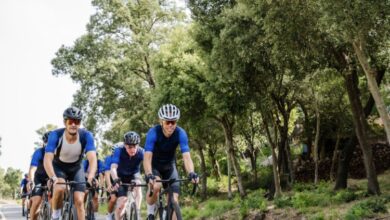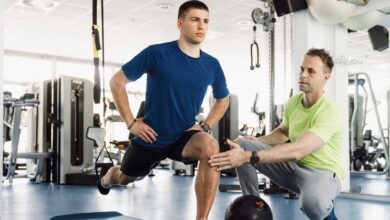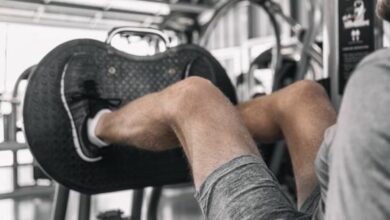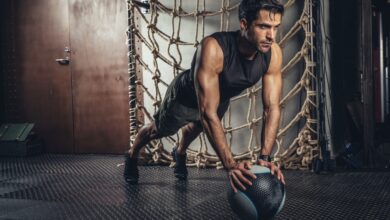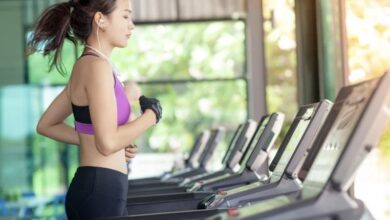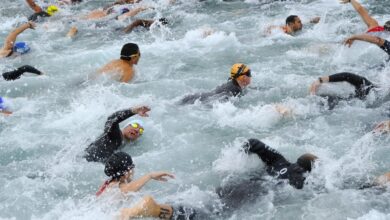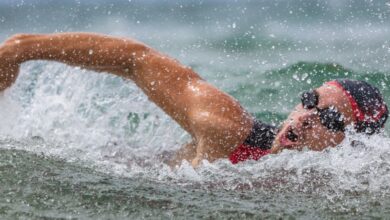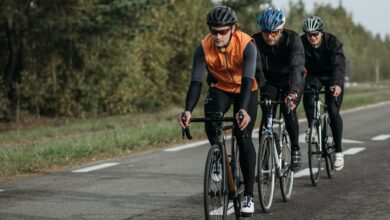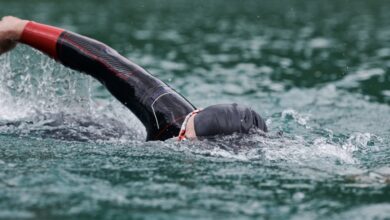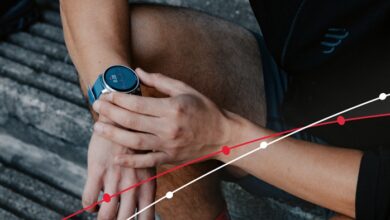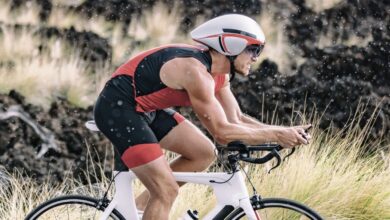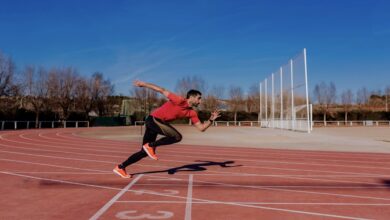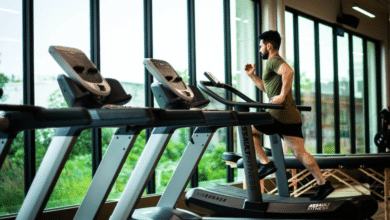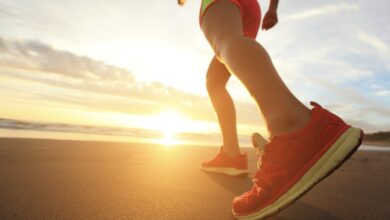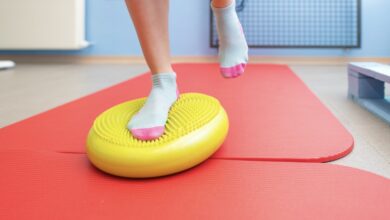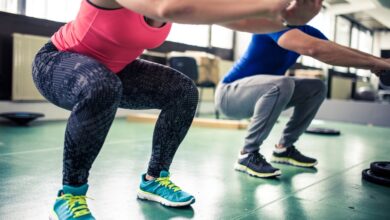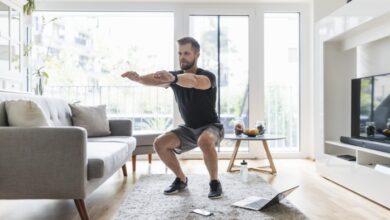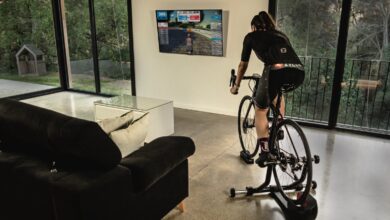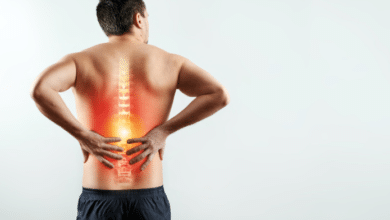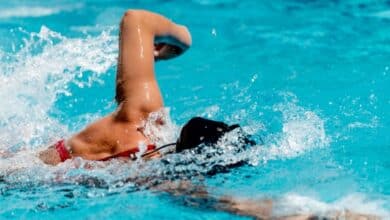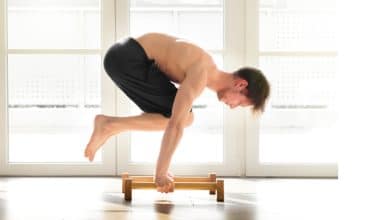What an athlete has to know about the coronavirus
Should I compete? Should I change my Training? Is it safe to go to the gym? Can I get coronavirus in the pool?
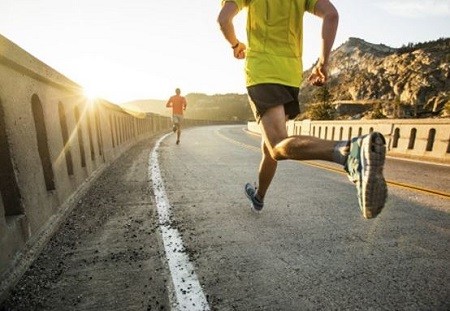
We echo this article published on the web triathlete, where they ask Dr. Leah Roberts questions about the doubts that are emerging in athletes due to the coronavirus.
As the days go by we see more competitions canceled, communities with more preventive measures and fairer general concern for the coronavirus COVID-19
Triathletes have their own questions about the coronavirus: Should I compete? Should I change my Training? Is it safe to go to the gym? Can I get coronavirus in the pool?
You have to worry but don't panic
Athletes should be concerned about the coronavirus and its spread, but not panic, says SteadyMD's Dr. Leah Roberts and the I Race Like a Girl team doctor.
Although you must follow some basic practices to reduce risk Of acquiring or spreading the coronavirus, these are mainly things you should have been doing all along: washing hands, don't touch your face And be more aware of hygiene.
Most athletes have a strong immune system
As Roberts explains, his training may have prepared you for this moment:
"Thanks to adequate sleep, good nutrition and balanced training, most athletes have a strong immune system. They can contract the coronavirus, but they can fight itor ”.
An alternative is roller training at home. If you do not know what to do or you find it boring we give you several options roller training
The challenge is not to transmit the virus to sick or at-risk people
Even if an athlete is healthy, the challenge is not to fight the virus but toAvoid transmitting it to those classified as risky.
The virus is spread through the air and can spread before it shows symptoms.
To avoid this, cities are implementing crowd restrictions, The league has suspended its games, even the NBA has indefinitely suspended the rest of its season
Avoid workouts that carry a risk, such as cycling
This type of training athletes have a risk of falling that can take them to the hospital ...
At this time, in areas like Madrid, we must avoid overloading medical centers, since right now they are essential to control the virus.
What can I do to avoid coronavirus while in the gym?
First, clean the equipment you are going to use with cleaning wipes before and after use.
Your gym likely provided them, but it's not known if most people have used them. As a consequence of this, the machines and equipment in a gym can get quite dirty.
A study revealed that 362 times more bacteria in free weights in a gym than in a toilet seat public.
If possible, use a water bottle with a cap, This will prevent someone else's viral respiratory drops from the gym from entering your mouth directly.
Also, Roberts says that do not touch your face, fix your hair, wipe off sweat with your hands while exercising.
When you're done with your training, wash your hands, especially before eating or drinking.
2 alternatives to the gym to train at home
Can a triathlete get coronavirus in the pool?
The CDC currently says thate there is no evidence that COVID-19 can spread through swimming pools or hot tubs, Although certainly if you are in a lane in Masters with seven other people and one of them is coughing next to you, then you could get infected.
Yesterday we published an article explaining that the coronavirus is not spread by water.
The predominant way of spreading the virus is through respiratory drops
"The predominant way of spreading the virus is through respiratory dropsRoberts explains. “
To date, there are no studies showing how warm, moist air affects the transmission of these respiratory droplets, but I would speculate that Unless another athlete coughs within a few feet of your mouth, the chance of contracting the virus is low."
There are also no studies at this time showing how long the virus can survive outside the body on objects (such as the pool cover and swimming toys). To be safe, use the same approach as the gym
What can I do to minimize the risk of coronavirus in mass tests?
The good news is that triathlon or race events are carried out abroad, so the triathletes have a lower risk of transmission than being in closed spaces with many people.
Still, transmission is possible by touching contaminated surfaces (such as bags, bathroom doors and bicycle pumps, etc.), therefore, limit the number of times you touch your face and mouth before, during and after the race.
And the provisioning areas?
What about aid stations, where who knows how many volunteers and athletes touch the glasses, food or supplies?
"Would follow as planned regarding these stations and the execution of the race plan”, says Roberts
This is because most career managers are making an even greater effort to keep their aid stations as hygienic as possible.
Don't forget to eat after the race
"Calories are extremely important immediately after a race. Alone Be sure to use hand sanitizer or wash your hands before eating something from the buffet ".
Should I reduce my triathlon training to keep my immune system capable of fighting coronavirus?
As with racing, the good thing about triathlon training is that It is mainly done outdoors and not in closed spaces.
The other good thing is that, for the most part, moderate training makes your immune system healthier.
Only when we reach extreme levels of stress in trainingor, our immune system begins to be compromised.
"If the body is not receiving adequate recovery, then the immune system can be compromised,” says Roberts.
"A compromised immune system means an iinability to fight a pathogen like the coronavirus, the flu, the common cold or bacteria.”
But as long as your training plan allows you to feel recovered (rather than physically or mentally fatigued or exhausted), there's no reason to cut it.
The smartest triathletes are in tune with their bodies and will recognize when they feel a bit 'off': this is the time to stop.
There are no previous results.







